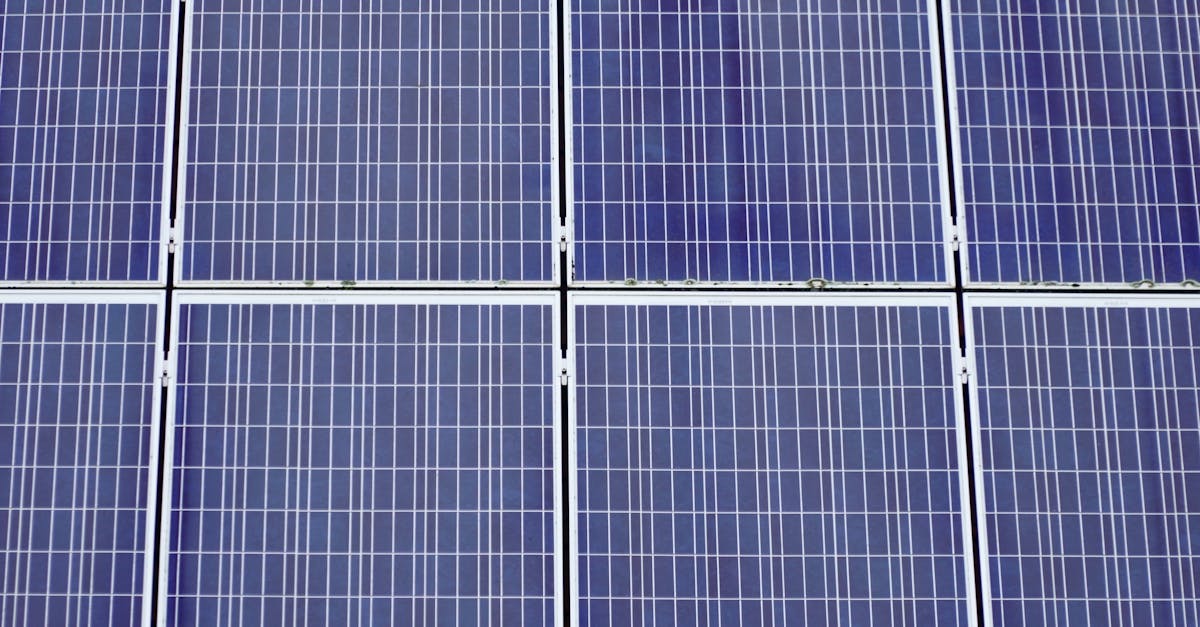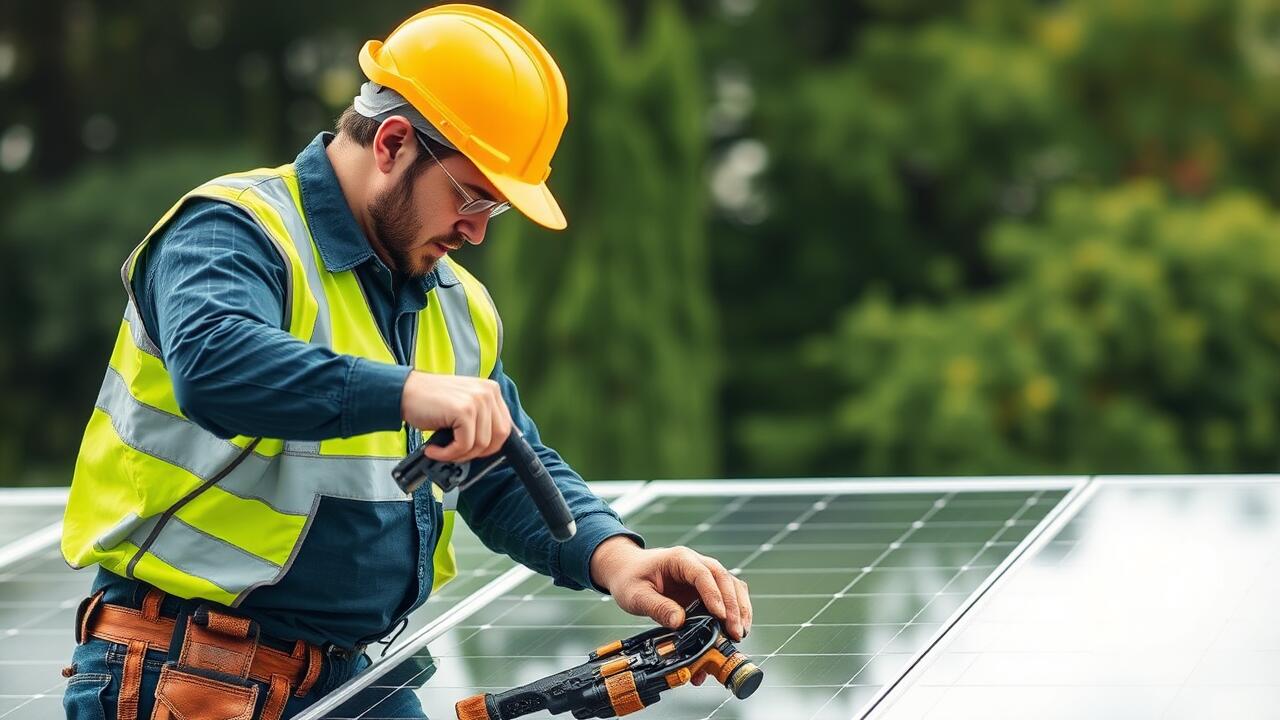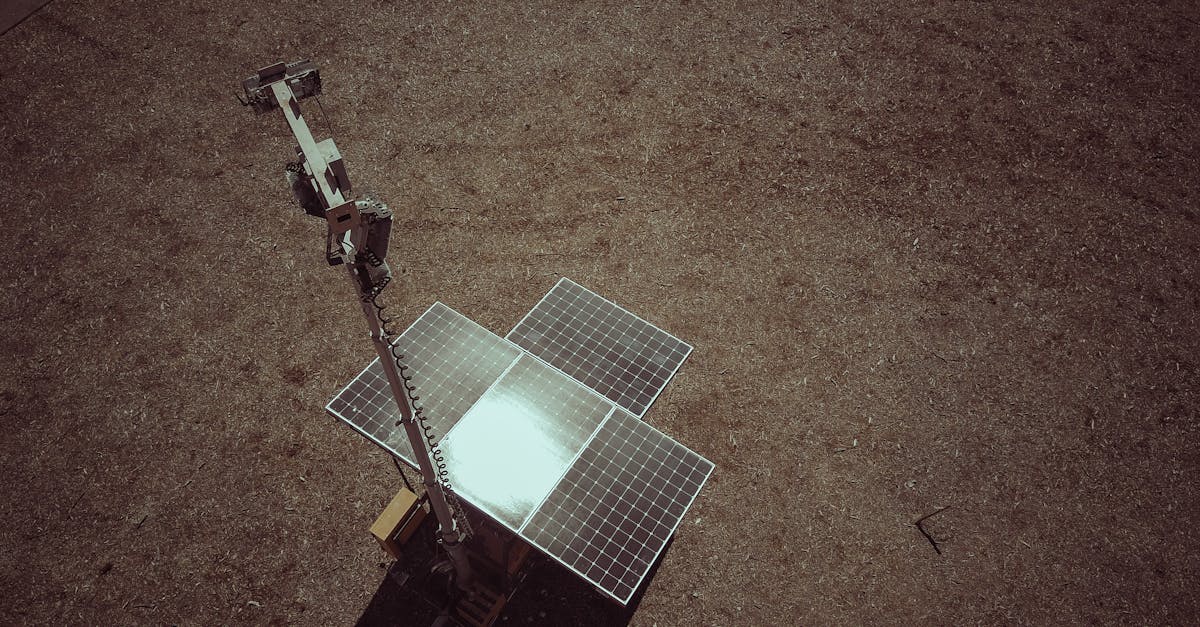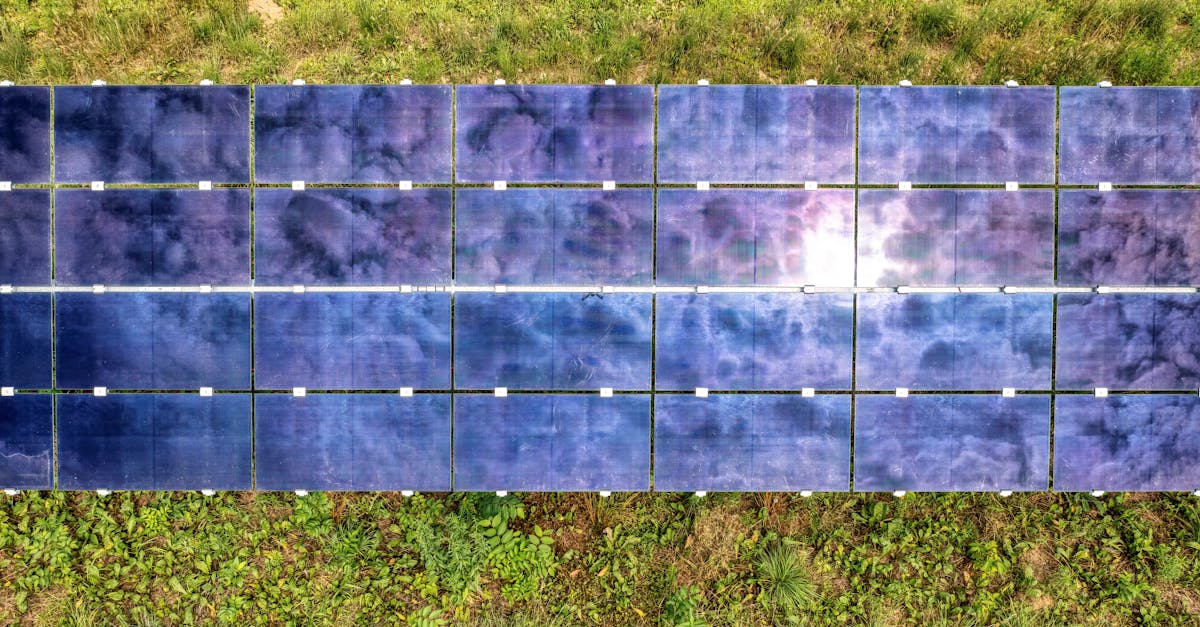
Warranty Information and Coverage
When considering the longevity of solar panels, warranty information plays a crucial role. Most manufacturers offer warranties ranging from 10 to 25 years, covering defects in materials and workmanship. A robust warranty not only protects your investment but also provides peace of mind about the performance of the solar system over time. It's essential to thoroughly review the terms and conditions of these warranties, as they can vary significantly between manufacturers.
In addition to manufacturer warranties, many installation companies provide their own coverage. This can encompass workmanship guarantees that ensure proper installation and maintenance. Understanding the warranty details can help manage expectations regarding repairs or replacements, especially in specific areas like Solar Panel Repair Greasley, Nottinghamshire, where local service availability might affect your options. Considering these factors can help homeowners make informed decisions about their solar energy investments.
What to Look for in a Warranty
When evaluating a warranty for solar panels, important aspects to consider include the duration of coverage and what specific components are included. A comprehensive warranty often spans 20 to 25 years for product defects, while performance guarantees may ensure panel efficiency for an extended period. Additionally, it’s vital to scrutinise any fine print related to exclusions or conditions that could invalidate the warranty. Customers in Tollerton, Nottinghamshire may want to inquire about local service providers for Solar Panel Repair Tollerton, Nottinghamshire, as availability can affect the efficiency of claims.
Another element to look for in a solar panel warranty is the company's reputation and their customer support policies. Reliable manufacturers typically offer robust assistance throughout the warranty period, ensuring that any issues can be resolved promptly. It’s beneficial to read reviews or seek recommendations from other users in the community. A diligent approach can help mitigate potential problems that may arise in the future, providing peace of mind about the investment in renewable energy.
Environmental Impact on Lifespan
The environmental factors surrounding solar panels can significantly impact their lifespan. Weather conditions such as extreme temperatures, humidity, and UV exposure play essential roles in determining how long a solar panel will last. Prolonged exposure to harsh weather can lead to issues like delamination, corrosion, and physical damage. Regular maintenance can help mitigate some of these effects, but geographical location also plays a part. Areas prone to severe storms, heavy snowfall, or intense sun may present particular challenges that need to be addressed through installation techniques and material selection.
In the event that solar panels do suffer damage, services such as Solar Panel Repair Nottingham, Nottinghamshire, provide vital support in restoring their function. Keeping panels in optimal working condition is crucial not only for performance but also for longevity. Advances in material technology aim to create panels better equipped to withstand the rigours of their environment. With proper care and attention, the adverse effects of environmental factors can be minimised, ultimately extending the lifespan of solar installations.
How Weather Conditions Affect Solar Panels
Weather conditions play a significant role in determining the lifespan of solar panels. Extreme temperatures, both high and low, can affect the efficiency and durability of the panels. Prolonged exposure to harsh sunlight can lead to thermal stress, which might cause materials to expand and contract. Additionally, moisture can seep into any small cracks, accelerating degradation over time. Regular maintenance and assessments are crucial in areas prone to severe weather to prevent long-term damage. For those in need of repairs, services such as Solar Panel Repair Newark On Trent, Nottinghamshire, can offer essential support.
Another important aspect is the impact of environmental phenomena like hail, snow, and heavy rainfall. Panels must be robust enough to withstand hailstones, which can occasionally cause physical damage. Snow can accumulate and block sunlight, though most panels are designed to shed snow due to their sloped surfaces. In cases of consistent exposure to high winds or heavy precipitation, the stability of the installation becomes critical. Professional services, including those available in Newark On Trent, ensure that the panels remain effective and safeguard against the elements.
The Role of Technology in Lifespan
Technological advancements have significantly influenced the lifespan and efficiency of solar panels. Innovative materials and improved manufacturing processes ensure greater resilience against environmental factors. Enhanced solar cell designs can capture sunlight more effectively, maximising energy output and longevity. These improvements have shifted the focus from merely generating power to ensuring that panels maintain their performance for extended periods.
Regular maintenance and timely interventions are crucial when it comes to prolonging the life of solar panels. Services such as Solar Panel Repair Gainsborough, Nottinghamshire, provide essential support in maintaining optimal functionality. Addressing issues promptly prevents further damage and maximises energy conversion efficiency. As technology continues to evolve, the reliability and durability of solar panels are set to improve even further, making long-term investment more appealing.
Advances That Enhance Durability
Recent technological advancements play a crucial role in enhancing the durability of solar panels. Innovations in materials, such as reinforced glass and robust encapsulation techniques, offer improved resistance to environmental stressors. These advancements help protect solar cells from physical damage, moisture intrusion, and UV degradation. Manufacturers are increasingly prioritising longevity, enabling panels to withstand harsh weather conditions, which is especially relevant for regions with unpredictable climates.
In addition to advanced materials, integrated monitoring systems can now detect performance issues promptly, allowing for timely interventions. This proactive approach reduces the risk of extensive damage and extends the functional lifespan of solar panels. In Nottinghamshire, services like Solar Panel Repair Nottinghamshire, Nottinghamshire ensure that any potential issues are addressed efficiently, further contributing to the panels' longevity. As technology continues to evolve, the resilience of solar panels will likely improve, enhancing their reliability as a sustainable energy solution.
FAQS
What is the average lifespan of a solar panel?
The average lifespan of a solar panel is typically around 25 to 30 years, although many panels can continue to operate efficiently beyond this period.
Do solar panels come with a warranty?
Yes, most solar panels come with a warranty that usually lasts between 10 to 25 years, covering defects and performance issues.
How does weather impact the lifespan of solar panels?
Weather conditions such as extreme temperatures, heavy snow, and hail can affect solar panels. However, most modern panels are designed to withstand various environmental factors and have protective measures in place.
Can I extend the lifespan of my solar panels?
Yes, regular maintenance and cleaning, as well as ensuring proper installation, can help extend the lifespan of your solar panels.
What technological advancements are contributing to the durability of solar panels?
Recent advancements include improved materials that resist degradation and better encapsulation techniques, which enhance the overall durability and lifespan of solar panels.


